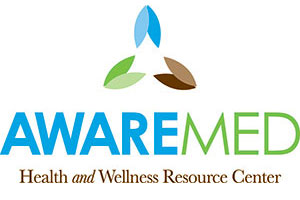Toxic Shock Syndrome Treatment in Abingdon, VA

What Is Toxic Shock Syndrome?
Toxic shock syndrome (TSS) is a rare but life-threatening medical condition that requires immediate medical attention. Toxic shock syndrome is most often caused when the bacterium Staphylococcus aureus enters the bloodstream and produces toxins. It may also be caused by toxins produced by group A Streptococcus bacteria.
Toxic shock syndrome has most frequently been linked to the use of super-absorbent tampons in menstruating women. Less often the cause of toxic shock syndrome for women has been due to the use of diaphragms or contraceptive sponges. This condition can also affect men, children and non-menstruating women as additional risk factors for exposure to the bacteria that cause toxic shock syndrome include open cuts or burns on the skin as well as surgery, or having a compromised immune system.
The body responds to the poisons that are released by either staphylococcus or streptococcus with an immediate drop in blood pressure. This causes a severe deprivation of oxygen to the body’s organs. If left untreated, toxic shock syndrome can cause major organ damage or even death.
To speak with a healthcare provider in Abingdon regarding toxic shock syndrome treatment, call (423) 482-8711 or contact AWAREmed Health and Wellness Resource Center online.
Toxic Shock Syndrome Symptoms
The main symptoms of TSS are a sudden high fever and vomiting. Additional toxic shock syndrome symptoms include:
- Diarrhea
- Low blood pressure
- Muscle aches
- Seizure
- Headaches
- A rash on the palms of the hands and soles of the feet
- Fatigue
- Difficulty breathing
If you are menstruating and have been using tampons, or if you are using a diaphragm or cervical cap and are experiencing a very high fever and vomiting, call your healthcare practitioner immediately. The same precaution should be taken if you are experiencing a sudden high fever and vomiting and you have an associated skin or wound infection.
Toxic Shock Syndrome Causes
The cause of toxic shock syndrome is related to the poisons known as exotoxins that are secreted by the bacteria staphylococcus or streptococcus. The exotoxins activate specific cells in the immune system (T cells) to produce chemicals known as cytokines that cause shock and tissue damage.
Staphylococcus is normally present in tissues such as the vagina. When the staphylococcus numbers are limited, the bacteria can reside in the body without causing harm. However, toxic shock syndrome is distinct in that specific conditions cause the rapid growth and release of staph toxins that enter the body. Environmental conditions such as the use of super-absorbent tampons can encourage its growth. Tampons that are saturated with blood, are made from polyester versus cotton can stimulate the growth of bacteria. Additionally, sliding a tampon into the vagina can cause microscopic tears that allow bacterial toxins to enter the bloodstream. Diaphragms and cervical caps can also trap bacteria in the vagina, particularly if they are left in for a long time.
Diagnosing Toxic Shock Syndrome
To arrive at a toxic shock syndrome diagnosis, your healthcare practitioner will likely begin with a physical examination, followed by blood and urine tests to check for the presence of staphylococcus or streptococcus infection. Swab samples taken from the throat, cervix or vagina can also be sent to the lab to identify whether staphylococcus or streptococcus infection is present.
Additional blood tests, CT scans or X-rays may be ordered to assess the function of major organs such as the heart, kidneys and liver.
Treatment for Toxic Shock Syndrome
Early diagnosis is crucial to provide effective treatment for toxic shock syndrome and to limit the effect of bacterial toxins to vital organs in the body.
Most patients with toxic shock syndrome require intravenous antibiotics and intravenous fluids given during a hospital stay. Additional treatment may vary depending on the extent of the condition and may include respiratory support and medication to stabilize blood pressure if it is very low. Patients with severe cases of toxic shock syndrome accompanied with kidney failure may need dialysis treatment. Surgery may also be necessary in order to remove dead tissue or to drain the infection site.
To meet with a healthcare practitioner in Abingdon who can discuss causes of toxic shock syndrome and your treatment options more in-depth, call (423) 482-8711 or contact AWAREmed Health and Wellness Resource Center online.
AWAREmed Health and Wellness Resource Center
Address
1604 Lamons LaneSuite 202
Johnson City, TN 37604
(423) 482-8711
www.awaremed.com
Hours
Mon:
9:00 am - 5:00 pm
Tue:
9:00 am - 5:00 pm
Wed:
9:00 am - 5:00 pm
Thu:
9:00 am - 5:00 pm
Fri:
9:00 am - 5:00 pm

